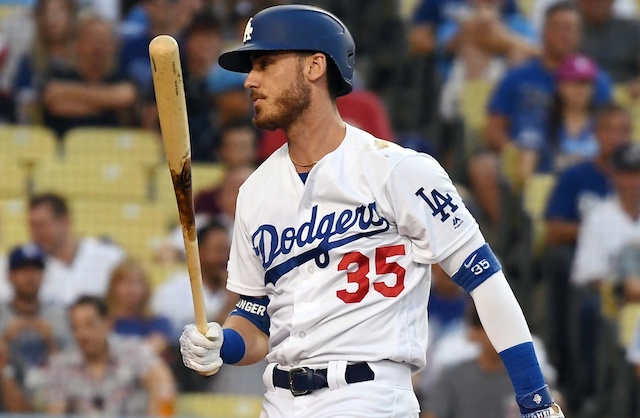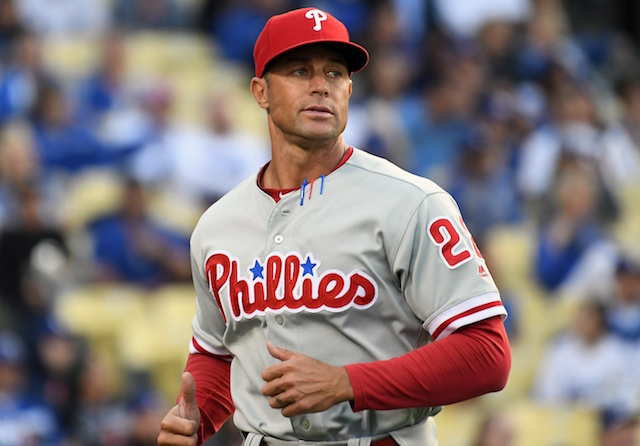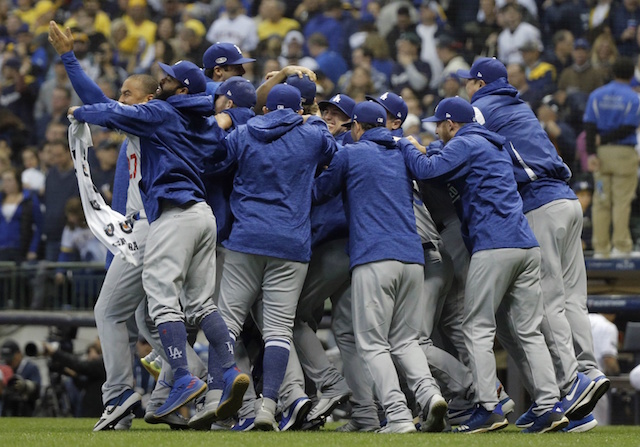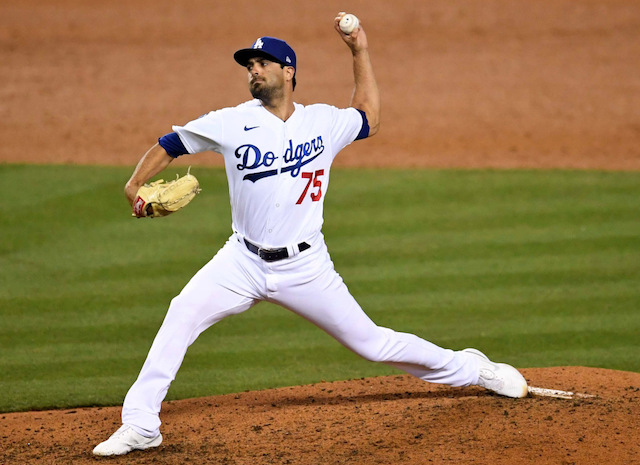After the Los Angeles Dodgers put the tying run on to lead off the bottom of the eighth inning, they were stopped in their tracks by more egregious strike calling by home-plate umpire Dan Iassogna.
Cody Bellinger protested two calls in his at-bat and angrily stormed toward the dugout after taking strike three — a legitimate pitch that was in the zone. A.J. Pollock grounded into an inning-ending double play, and any thought of a rally suddenly washed away.
Bellinger returned to the top step of the dugout for more protesting and was immediately ejected — the first of his Major League career. He ran onto the field and continued arguing with Iassogna before Dodgers bench coach Bob Geren escorted him back into the dugout and clubhouse.
“I just was telling him how far it was off the plate,” Bellinger said of the animated confrontation. “I mean, it’s going to happen. To be honest, he had a bad night. It’s going to happen.
“But bottom of the eighth inning, one-run game, you’ve got to lock it in. In that situation I’m trying to do the best I can to get on base. It’s hard to hit like that (with a wide strike zone).”
Bellinger’s suspicion was confirmed after he watched video of the two pitches off the corner that were called for strike, and it played a factor in his emotional response. “That was when I was like, ‘Alright, we’ve got to do something about this,'” he recalled.
The Dodgers had protested multiple calls on the night, and manager Dave Roberts twice emerged from his usual seat in the dugout during Bellinger’s at-bat in the eighth inning. In that situation, a manager often will take the ejection as a means of protecting his player.
Roberts argued on Bellinger’s behalf — after the ejection — but the National League MVP candidate didn’t fault his manager for not doing so beforehand. “I told him when I was right next to him before the inning ended that the calls were horrible,” Bellinger said.
“Right when I said that, the inning was over, so it was, ‘I’m just going to say what I have to say right now.'”
Bellinger admitted to not being privy to how MLB umpires are graded or evaluated, and therefore wasn’t comfortable asking a question about accountability, or lack thereof.
Meanwhile, although Roberts was willing to acknowledge frustrations with Iassogna, he stopped short of blaming the veteran umpire for his team’s loss. “These guys are busting their tails to try to get every call right,” Roberts said.
“We see balls off the plates that flip counts, can change innings and certainly at-bats, it gets frustrating, especially if you’re the hitter. But those calls didn’t cost us the game. I still think we had opportunities, and they got hits when they needed to.”










